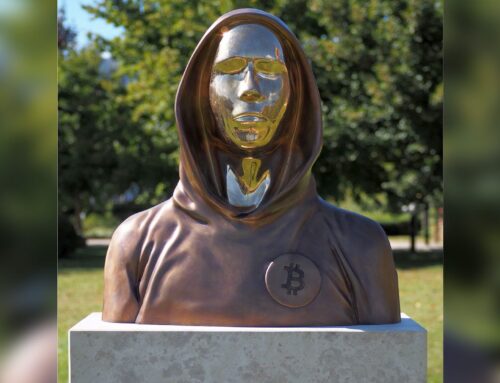Meta faces ‘one of the biggest antitrust cases’ in decades. Here’s what to watch
April 15, 2025
In This Story
Meta’s (META-1.69%) monopoly trial kicked off on Monday, throughout which the Federal Trade Commission will argue that the Facebook owner bought Instagram (in 2012) and WhatsApp (2014) to squash emerging competitive threats to Mark Zuckerberg’s social media empire.
The case started during President Donald Trump’s first term, and it carried on under President Joe Biden’s FTC. The regulator accuses Meta of engaging in a “buy or bury” ploy to eliminate its social networking rivals, while Meta argues that it plays nicely and is just one successful player among several formidable competitors — namely TikTok and YouTube (GOOGL+1.87%).
“I think it’s going to be one of the biggest antitrust cases we’ve seen in decades,” said Prasad Krishnamurthy, a professor at the University of California, Berkeley, who studies financial regulation and antitrust law.
Krishnamurthy and several other antitrust and industry experts highlighted the key questions surrounding the antitrust case.
Where does Meta allegedly have a monopoly?
“What the government needs to do is to try to define the market as narrowly as possible,” Krishnamurthy said. In this case, the FTC is arguing that Meta has monopoly power among “personal social networking services” in the U.S. This definition excludes services where people primary watch stuff made by strangers, such as YouTube and TikTok.
For its part, Meta believes those companies “should be included, because that’s how consumers are spending their time online,” Krishnamurthy said.
But is this an accurate way to sum up Meta’s business? Jasmine Enberg, eMarketer’s vice president and principal analyst, said the FTC’s “personal social networking” categorization is “a very outdated definition for what Meta is, and for what Facebook and Instagram are.”
“These platforms have expanded since the acquisitions, and barely resemble what they were back in 2012 or, for Facebook, even earlier,” Enberg added.
Meta argued something like this in a statement before the trial, saying “every 17-year-old in the world knows” that its apps “compete with Chinese-owned TikTok, YouTube, X, iMessage (AAPL+3.79%) and many others.”
Can the FTC prove monopoly power?
If TikTok counts, “then the government’s going to have a really hard time showing a large enough market share to prove monopoly power,” said Rebecca Allensworth, an antitrust law expert and Vanderbilt’s associate dean for research.
While Allensworth cautioned that it’s difficult to prejudge this sort of thing, she thinks it’s “plausible that TikTok is not in the market.” While both Facebook and TikTok compete for users’ attention, she said, “I don’t think people think of them as true alternatives — and that’s because Facebook and TikTok do kind of different things.”
Something that could help the FTC’s case, Allensworth added, would be Meta’s ability to make its products worse without shedding users. “And that’s kind of what’s happened,” she said. “You know, it’s become less private. There’s a lot of ads. They’ve done a lot to content moderation that people aren’t necessarily happy about.”
To successfully make its case, the FTC needs to “prove that the market is worse off as a result of Meta’s actions,” Krishnamurthy said. Meta, meanwhile, will argue that the money it’s pumped into Instagram and WhatApp has made those services bigger and better than they would have otherwise turned out. “I think that’s going to be the back and forth” in this case, Krishnamurthy said.
Much of the evidence in this case is “over a decade old, and it consists of the contemporaneous business records” from back when Facebook was considering buying Instagram and WhatsApp, said William Kovacic, a former FTC commissioner who now teaches law at George Washington University.
A lot of this stuff is already out. For example, in an email to former Facebook chief financial officer David Ebersman, Zuckerberg once indicated that the company might pursue an acquisition to neutralize a potential competitor. The FTC may have additional evidence to show that would effectively air Meta’s dirty laundry around its acquisition goals at that time.
But, Kovacic said, Meta may argue that, “Whatever you see in our emails from 2012 and 2014, whatever anxiety we might have had about this competitive threat, we ended up developing these capabilities and making them available to consumers in a way that could not have happened otherwise.
Kovacic added: “A challenging part of the FTC case is to say, even if consumers have had good experiences, it would have been better” had Meta not gobbled up those apps.
There’s a ton of history here, too: “None of the competition authorities that looked at these transactions intervened” back in 2012 and 2014, Kovacic noted.
Today, there are tons of different apps with social features competing for users’ eyeballs. But “on the business side of things, it’s still incredibly consolidated toward Meta, particularly if you’re looking at social ad spending alone,” Enberg said. “In 2025, we’re expecting about 72.5% of social ad spending in the U.S. to go directly to meta,” the eMarketer executive said.
What would fix things, according to the FTC?
“If the government succeeds in the case, which is a big if,” Allensworth said, “then I do think the most likely remedy will be some kind of divestiture or a breakup.” In other words, Meta would be forced to unwind its acquisitions of Instagram, or WhatsApp, or both services. Allensworth added, “I don’t think it’s obvious that [the FTC is] going to succeed, but they may very well do so.”
As part of the remedy stage, the FTC is expected to make the case that splitting up Meta would make social media better — that competition will help fix issues such as intrusive ads and weak privacy protections. Meta, of course, will argue the opposite.
What about Trump?
“It is intriguing to speculate about the impact of Meta’s efforts to develop a more friendly relationship with the White House and its efforts in recent weeks to persuade the White House to use its influence to change the direction of the case or abandon it,” said Kovacic, the former FTC commissioner.
But while Meta donated $1 million to Trump’s inaugural fund and curried favor with him by killing its program for professional fact-checkers, the FTC has given no indication that it will back off the case.
Asked whether Trump will intervene, Krishnamurthy laughed and said, “I mean, there’s got to be a chance, because he’s very hard to predict.”
“Anyone who’s following this knows that Trump can change his mind on a dime,” Krishnamurthy said. He added that he would not be surprised if Trump “weighs in on the case on social media — if he sees that this as a way to garner more attention to himself by commenting on the case and potentially playing a role in shaping it. So I think we’re just going to have to hold on to our seats and see.”
Search
RECENT PRESS RELEASES
Related Post


